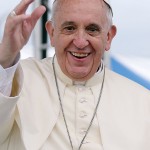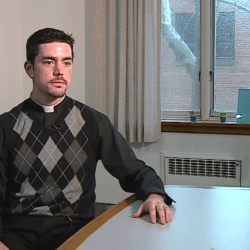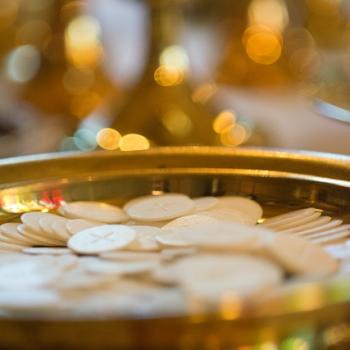A couple weeks back, a post over at PrayTell got a lot of attention, and stirred up a lot of debate, describing what it called “the pastoral difficulties with newly ordained priests.”
Now a priest ordained in 2011 has offered a thoughtful response. Fr. David M. Friel, a blogging priest from Philadelphia, addresses the specific “difficulties” cited in the post, but then offers his thoughts about what the post left out:
The two major issues that go unaddressed in the article are these: the impact of the sexual abuse crisis on the recently ordained and the era of Summorum Pontificum.
First, let me speak about the impact of the sexual abuse crisis on us. I entered the seminary in 2003, one year after the Church in America was forever changed by unrelenting reports in The Boston Globe of deviant crimes by priests & shameful cover-up by bishops. I had classmates who were studying for the Archdiocese of Boston, so the crushing news never seemed distant. Then, in 2005, the first of two scathing grand jury reports was published, detailing the horrors of priestly abuse in my own Archdiocese of Philadelphia. The second was published in February 2011, three months before I was ordained a priest. On top of that, a massive number of my priest role models were among those accused or removed for having gone astray.
My story is not unique. Initiating a discussion about “Pastoral Difficulties with Recently Ordained Priests” without so much as mentioning these issues is a clear demonstration of how much remains to be learned & understood about my generation of priests. The abuse crisis is as much a part of our DNA as the 9/11 attacks are upon the consciousness of New Yorkers.
Second, I think it is difficult for earlier generations of priests to appreciate what it was like to be in the seminary at the time Summorum Pontificum was released. The most senior priests alive today remember celebrating Mass before the reforms of the Second Vatican Council. The vast majority of our priests, however, have no lived experience of celebrating that Order of Mass. Many don’t even have memories of attending it. For most priests in ministry today, what we now called the “Extraordinary Form” is still basically regarded as the “indult Mass,” the weird penchant of an isolated few conservative wackjobs. But the recently ordained and those in formation now were mostly raised without the same hang-ups that former generations have about the “Tridentine Mass.” Thus, there is often a greater openness to the gift Pope Benedict has given us throughSummorum Pontificum.
When I entered the seminary in 2003, seminarians would have been fearful to mention the word “fiddleback,” and to attend an “indult Mass” would have been to take a perilous risk. These things would have been considered major “formation issues.” By the time I was ordained, however, we had celebrated Mass in the Extraordinary Form at the high altar in the seminary chapel. These were strange times.
Going through seminary formation at a time when there are two legitimate forms of the Roman Rite is a very new thing. Why wouldn’t a seminarian today want to be able to celebrate both forms, if not out of personal interest, at least out of professional competency? In today’s Church, a seminarian who doesn’t have an interest in learning both forms of the Mass is a bit like a fellow who dreams of becoming a parking valet but who refuses to learn to drive a standard transmission.
He has much more to offer, and it’s well worth the time. Read it all.
Photo: from Views of the Choir Loft












